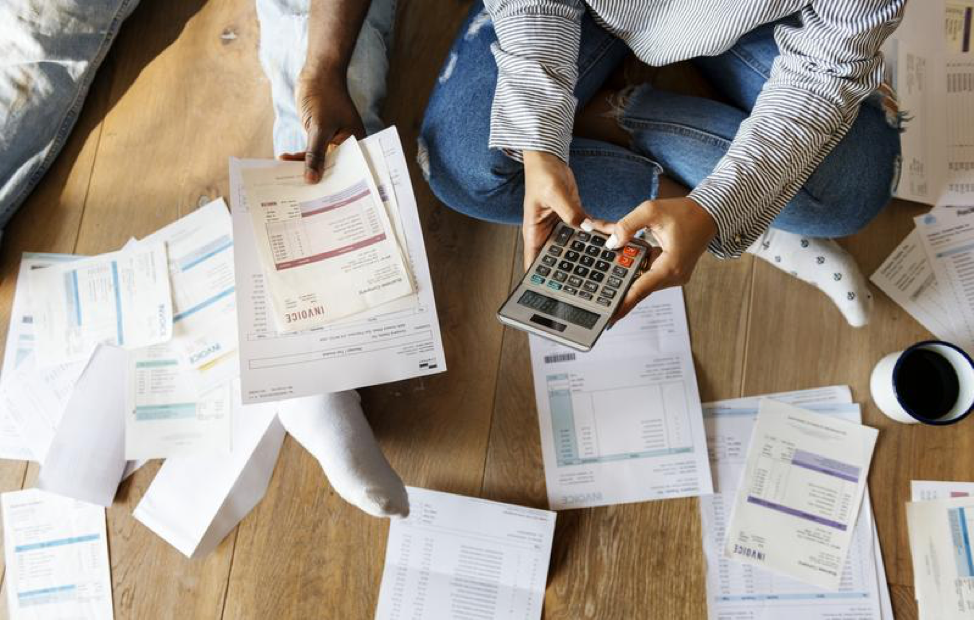Five Ways to Financial Success
People always make resolutions to manage their personal finances better. Whether that means saving more, or setting up a personal budget, the...

Being a teenager is an exciting time. You’re starting to become more independent and getting close to the time where you’ll venture out into the world to make your mark on it.
Wouldn’t it be great if you had a head start?
Fortunately, there are some financial moves you can do as a teenager that will have an enormous effect on your financial well-being.
When most people get a paycheck, the last thing they want to do is save part of it. That’s understandable. Most people have a long list of things they want, or need, to spend money on.
If you save part of your money, though, you’ll be setting yourself up for some impressive benefits. You’ll have greater financial security since you'll have the money to fall back on in an emergency. You’ll also be able to use your savings to take advantage of opportunities when they come up, like going to see a concert with friends or buying a new smartphone when one goes on sale.
Savings can also generate interest.
Albert Einstein once called compound interest “the most powerful force in the universe,” and with good reason. Compound interest is basically money earning more money, with no additional effort on your part.
What makes this especially relevant for you as a teen is that for compound interest to really pay off you need time for the money to grow, and when you're young have that in abundance.
 Here’s an example. Let’s say you work at a summer job, and by the end of summer you’ve saved $1,000. You invest that money in a retirement fund which grows at a rate of 5% a year with compounding interest. If you were to wait 30 years without adding another cent to your original sum, you would have about $4,468!
Here’s an example. Let’s say you work at a summer job, and by the end of summer you’ve saved $1,000. You invest that money in a retirement fund which grows at a rate of 5% a year with compounding interest. If you were to wait 30 years without adding another cent to your original sum, you would have about $4,468!
The more you save when you're in your teens and 20's, the more time your money will have to compound, earning interest on its interest. You might want to play around with a compound interest calculator to see what you can potentially earn using compound interest.
While saving money is advantageous and compound interest can help your money make more money, it can all seem pointless. Why put aside money for some vague future reason?
This is where setting goals comes in.
You might want to start by setting a goal to save enough money for something you really want to buy, like a bike, a smartphone or a gaming console. After you've had some success in saving for smaller goals, though, you can set a goal for something really big, like a car, college or even a down payment on a house.
 When most people hear the word budget, they immediately think of stressful, tedious work that puts you in a financial straitjacket. The truth is that, while putting together a budget can be a lot of work, it actually lets you put your money toward the things you want to put it toward and stops you from blowing your money on impulse buys you didn’t really want in the first place.
When most people hear the word budget, they immediately think of stressful, tedious work that puts you in a financial straitjacket. The truth is that, while putting together a budget can be a lot of work, it actually lets you put your money toward the things you want to put it toward and stops you from blowing your money on impulse buys you didn’t really want in the first place.
Setting a budget also helps you to stop worrying about your finances. Once you know where your money needs to go each month, you won’t have to wonder if you can buy that new gaming chair and still have enough left over to put into savings. It also helps you prioritize what you want to spend your money on and helps you figure out how you’ll hit your financial goals.
The more you learn about finances when you're a teenager, the better equipped you'll be when you go out into the world. The above financial moves can get you started on the right foot and potentially help you for the rest of your life.
You can also give yourself some valuable tools for financial success when you become a member at First Alliance Credit Union today. You only need $5 to open your Teen account, that comes complete with our free mobile banking app, and a debit card that can be enrolled in Apple Pay, Google Pay, or Samsung Pay. Plus, you'll be able to request and send money with Zelle!

People always make resolutions to manage their personal finances better. Whether that means saving more, or setting up a personal budget, the...

The closer Thanksgiving gets, the more most people start thinking about what they’re thankful for in their lives. This is also known as practicing...
.jpg)
When you get your paycheck, how do you feel? Are you confident that you’ll not only have enough money to pay all the bills that are due before your...